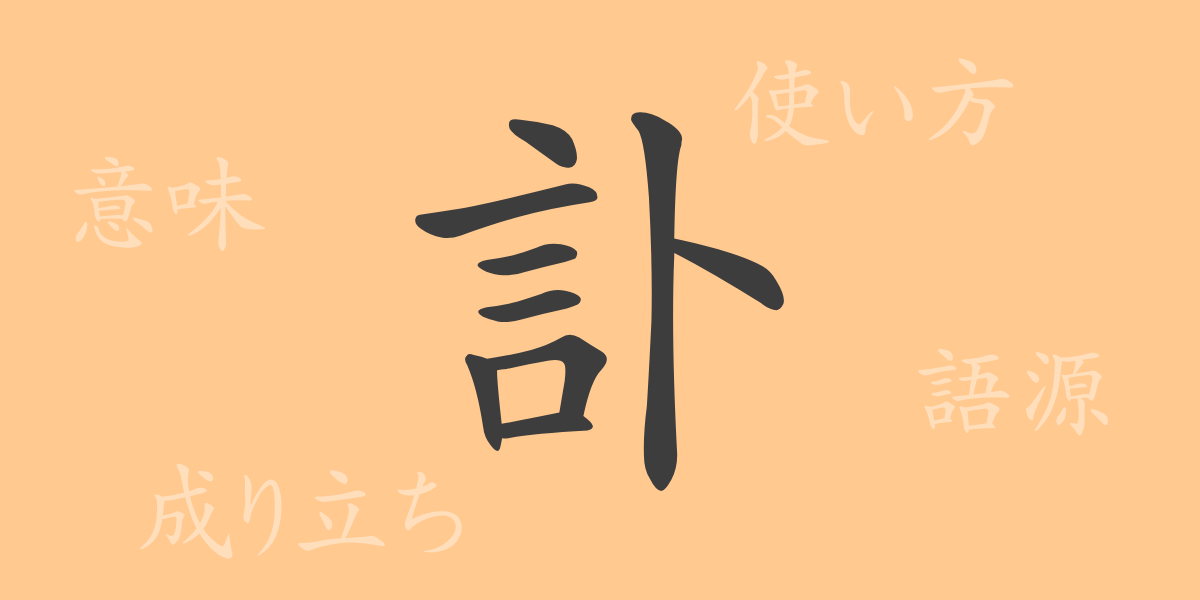The character “訃” (fu), which conveys the news of a death, carries deep history and culture. As a commonly used kanji in Japan, this single character reflects people’s emotions and their connection to society. In this article, we will delve into the origins, meaning, usage, pronunciation, and related idioms and expressions of “訃” (fu).
Origins of 訃 (fu)
The kanji “訃” (fu) is a character that originated from ancient China, and its formation is derived from its usage in ancient manuscripts. Originally, the character “報” (hou), meaning to announce or inform, was used. However, “訃” (fu) came to be used as a special announcement of death. This character combines the radical for speech “言” (gen) and the radical associated with death “歹” (gai).
Meaning and Usage of 訃 (fu)
“訃” (fu) is a kanji that means news of death or obituary. It is primarily used by the family of the deceased to inform relatives and friends, and can be seen in letters and obituary sections of newspapers. This kanji is used in formal contexts and is valued as a word to respectfully convey someone’s death.
Pronunciation, Stroke Count, and Radical of 訃 (fu)
Understanding the pronunciation and composition of the kanji “訃” (fu) is crucial for grasping its meaning deeply.
- Pronunciation: It is read as “fu” in on’yomi (Chinese reading).
- Stroke Count: “訃” (fu) has a total of 9 strokes.
- Radical: The radical is “言” (gen).
Idioms, Expressions, and Proverbs Using 訃 (fu) and Their Meanings
Idioms and expressions that include “訃” (fu) often relate to announcements of death. The representative idiom is “訃報” (fuhou), which means news of death. Additionally, “訃知” (fuchi) refers to receiving news of death. These expressions are used to show respect and mourning for the deceased.
Summary of 訃 (fu)
The kanji “訃” (fu) carries weight beyond being a mere character. As a word to convey death and share people’s sorrow, it plays an important role in Japanese culture. Through this article, you have hopefully gained a deeper understanding of the background and usage of “訃” (fu). When conveying the death of a loved one, it is essential to remember the respect and mourning embedded in this single character and use it appropriately.

























